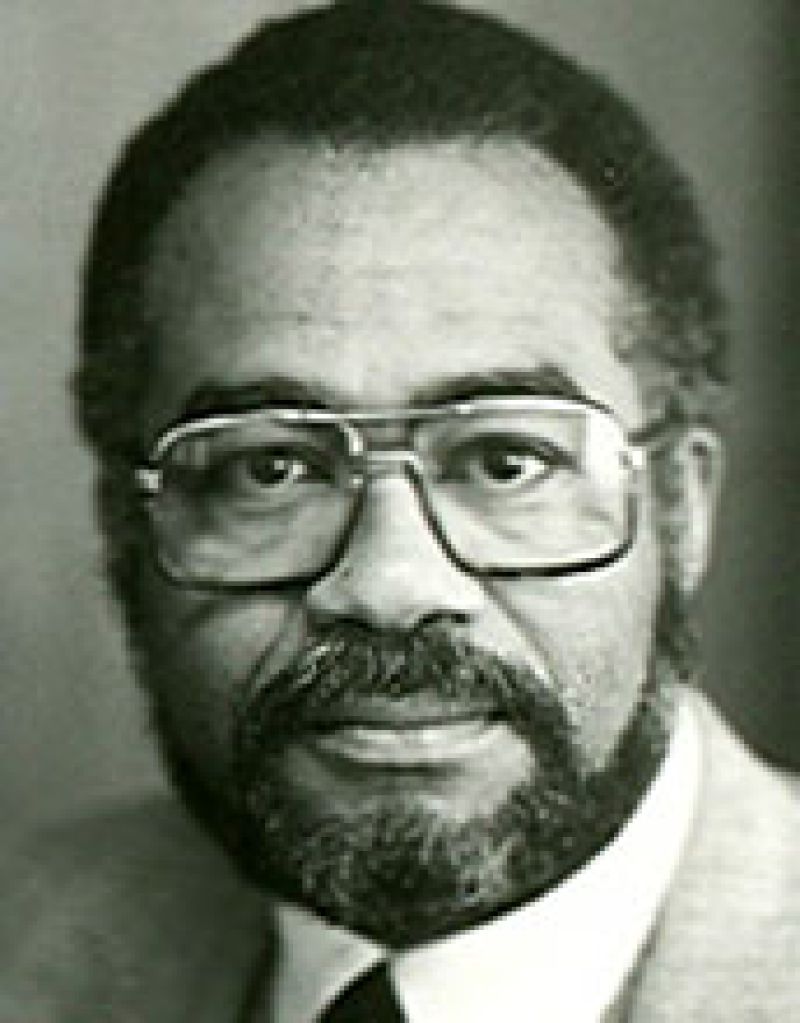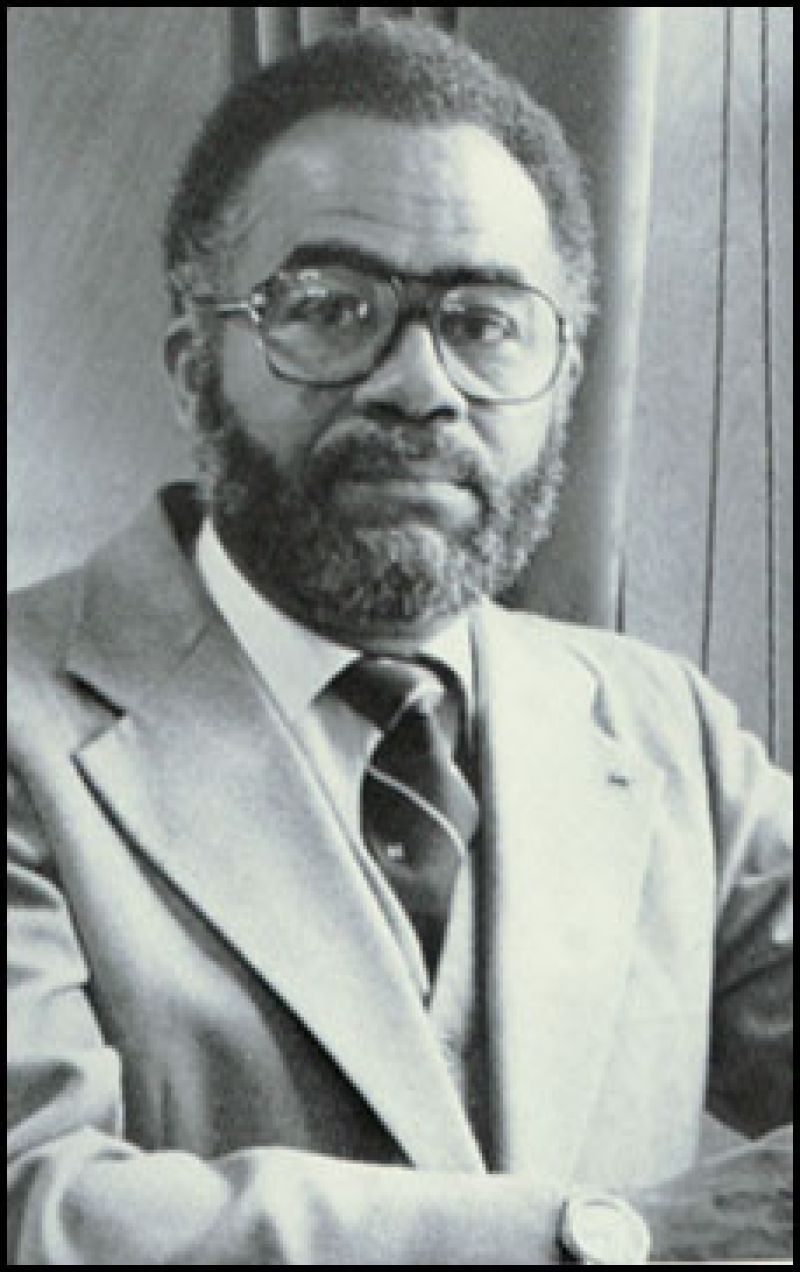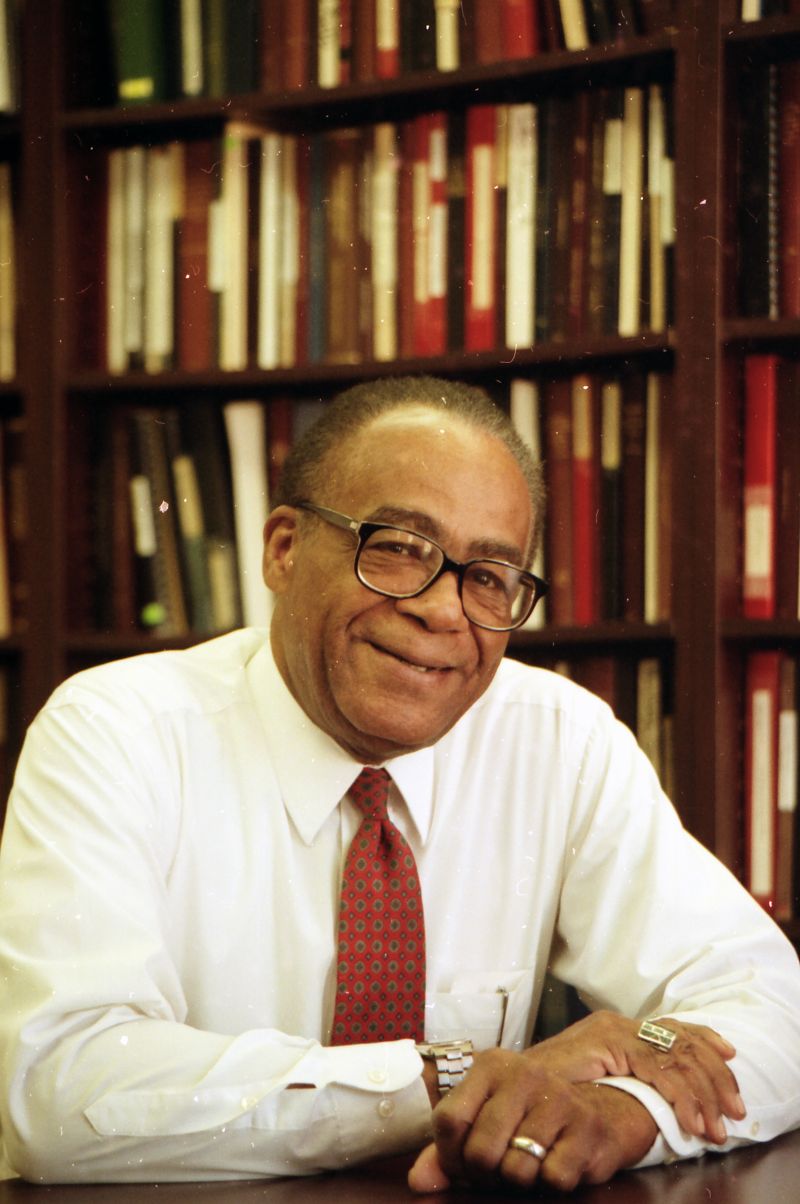John B. Slaughter - A fearless first
The 6th Director of NSF (1980 to 1982)
Over the course of his distinguished career, John Brooks Slaughter achieved many impressive firsts – the first African American chancellor of the University of Maryland, the first African American president of Occidental College and the first African American director of the U.S. National Science Foundation.
Slaughter filled each role with distinction while personally mentoring and advocating for many young scientists and engineers. In 2015, he was honored at the White House with the Presidential Award for Excellence in Science, Mathematics and Engineering Mentoring.
Slaughter led NSF with an unflinching commitment to science education, to increasing the role of engineering within the agency, and to the full inclusion of women and minorities in science. His leadership was marked by principle, no matter the risk. Here is a brief look into his extraordinary achievements at NSF and beyond.
You can’t say no to the President!
Following his early career as an engineer, Slaughter joined the University of Washington as director of the Applied Physics Laboratory, where he led studies in oceanographic and atmospheric research. In 1977, he was recruited by NSF Director Richard Atkinson to serve as assistant director for the Astronomical, Atmospheric, Earth and Ocean Sciences Directorate. Slaughter returned to academia in 1979 as provost at Washington State University. He was in this position for about a year when he received a personal phone call from President Jimmy Carter urging him to accept the nomination as director of NSF.
Helping Slaughter make the difficult decision to move his family back East was the president of Washington State. In a 2007 interview, Slaughter remembered his university president saying, “You can't say ‘no’ to the [U.S.] President!" Little did anyone know that one day Slaughter indirectly would.
A champion for science education
Slaughter assumed the position as NSF director as outgoing President Carter signed into law an appropriations bill for the agency. Slaughter immediately faced a major crisis. The administration of newly elected President Ronald Reagan directed NSF to terminate support for science education as well as for the behavioral and social sciences programs.
As generally expected of the NSF director, Slaughter was to defend the president’s budget at the annual authorization hearing of the Subcommittee on Science, Research and Technology of the House Science and Technology Committee. On his way to appear before the House Subcommittee, Slaughter had an epiphany. "I can't do this,” he recalls, “There's no way l can walk into that committee and say l want to abolish science education."
Without informing anyone, including his staff, he wrote a new testimony by hand, discarding the version that had been previously vetted by the Administration and sent ahead to Congress. And then he delivered it -- disagreeing publicly with the Administration and advocating continued support for science education and the social sciences.
The NSF budget support for science education was briefly terminated, along with support for the social sciences. Slaughter led a reorganization that would enable the agency to remain engaged in education and broadening participation programs. Today, education and social science initiatives at NSF are broadly supported and regarded as pillars of the agency’s research agenda.
The builder and his directorate
Slaughter also believed that engineering needed a more prominent role within NSF and that expanding its visibility, as a scientific endeavor, would be an asset to the agency and the nation. Building on the groundwork laid by his predecessors, he led the charge to propose, develop and establish NSF’s Directorate for Engineering.
While many in the community agreed with the idea, some resisted out of concern that funding for the new directorate would come at a cost to other directorates. “I had to be very clear in conversations…within the Foundation, externally, and with the Congress that this could not be a zero-sum game.… Additional funding would [be required] to mount a meaningful program.”
Being an engineer helped Slaughter make the case; and today, NSF’s Engineering Directorate plays an integral role in many advanced research priorities across the agency, including Artificial Intelligence, Advanced Manufacturing and Quantum research – all of which help drive American innovation. “John Slaughter’s vision continues to inspire us today,” says Dawn Tilbury, assistant director for Engineering at NSF. “Investments in engineering research and education are critical building blocks for America’s future prosperity and competitiveness.”
Rebuilding trust with minority serving institutions
During his tenure as an NSF Assistant Director, Slaughter observed a lack of funding opportunities for minority researchers from historically black colleges and universities. “I was concerned that the big money was not being made available to them, and in many cases, it was turning out to be a huge disadvantage for those researchers. … When I came back as director, it was something I vowed to try to change.”
And change it he did. Under Slaughter’s leadership, NSF funded critical programs at minority serving institutions, including the first-ever marine science program at Hampton University, which remains today the top marine undergraduate program in the country among HBCUs.
As NSF Director, Slaughter also focused on cultivating a deeper relationship between NSF and minority scientists by making a point to visit HBCUs. “What I was attempting to do was convey to those institutions that the National Science Foundation truly was receptive to their proposals, because there had grown a sense of alienation that needed to be addressed.”
In helping build those ties, Slaughter laid the foundation for a variety of NSF's current broadening participation programs, including the HBCU STEM Undergraduate Success Research Center (STEM-US) and the NSF INCLUDES National Network, both of which study and scale best practices for diversity in STEM.
A legacy remembered
Slaughter went on to have an impactful career after leaving NSF. As chancellor of the University of Maryland, he championed the recruitment and retention of African American students and faculty. And as president and CEO of the National Action Council for Minorities in Engineering, he grew the association’s partnerships from 13 to 50 institutions and helped expand engineering education to underrepresented communities.
At NSF, Slaughter’s legacy endures in the programs and constituents he fought to defend. He led the agency with conviction, applying his expertise as much as his perspective as an African American. John Slaughter will long be celebrated by those who follow fearlessly in the path he laid.






